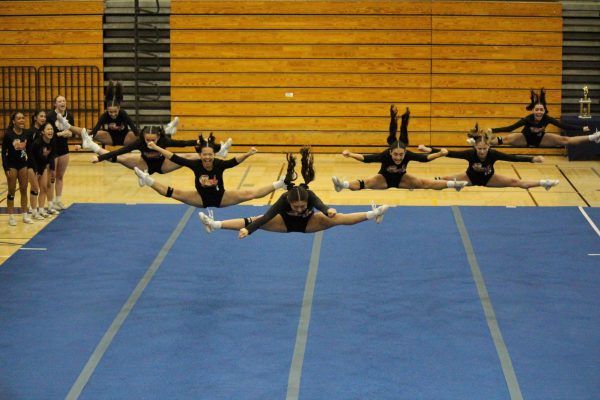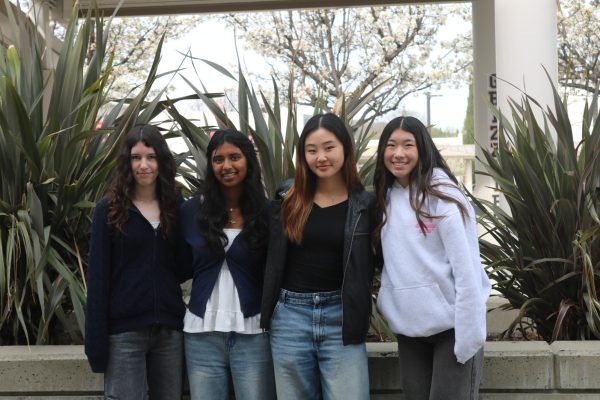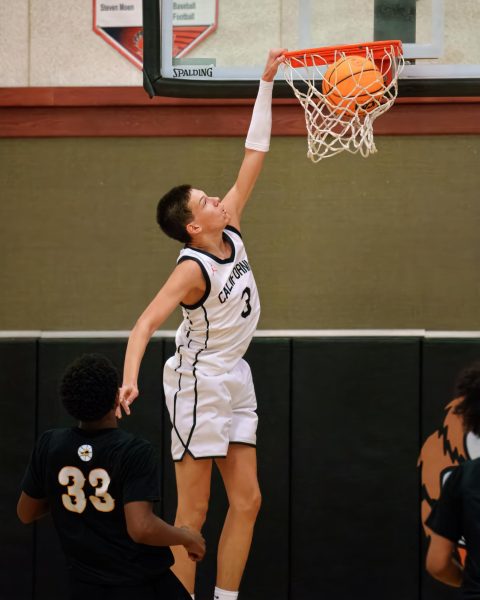Track eliminates bus for away meets
The track and field team’s decision to eliminate one bus to away meets has given nearly 60 student-athletes fewer chances to compete in track meets.
Unless athletes not scheduled to travel with the team are given rides from their parents, they have no alternate form of transportation to go to away meets.
This year there are about 175 students on the track team and the decision to use only two buses instead of three, which allows only 120 students to get a ride from the bus, is a result of the lack of donations obtained from the previous season.
“It’s upsetting because there are people on the rec[reational] team or frosh/soph team that want to go [to away meets] but are unable to,” said freshman Marina Fernandez.
Track and field head coach Mark Karbo said the decision regarding the number of buses used for the team every year is based on donations received from the previous year.
“We can’t operate at a deficit,” Karbo said. “We have to control our cost and cutting a bus is part of controlling our costs. Our priority is to break even.”
Since Karbo knew that only about 40 percent of the 175 athletes on the team paid donations last year, he decided to not hire a third bus to take the team to its five away meets this season.
“I think it’s ridiculous that people aren’t willing to pay the donation or at least part of it,” said junior Austin Block. “I can guarantee that most people [that get a spot] on the bus haven’t paid the donation. If they did we would be able to afford more than two buses.
“It pisses me off that people who can afford to pay the donation don’t pay it.”
Karbo said the cost of a school bus for a day runs between $600 and $700. The total cost for buses during the season adds up to $3,000-$3,500, he said.
Because of the limited number of seats, athletes are carefully selected to attend the away meets.
“Each [event] coach decides who gets to go on the bus [every week],” said Karbo.
Many team members understand Karbo’s reasoning for the athletes selected, but there is still controversy regarding who goes to away meets.
Some students have paid the suggested $374 donation to the track and field team, but are not given a definite seat on the bus.
“I didn’t pay the full [suggested] donation, but I paid about half of it which was about $100,” said junior Lauren Chhay. “I feel that [the bus cuts] are really unfair and now my opportunities are limited because if I mess up in a meet I have a smaller chance of getting into EBALs (East Bay Athletic League) which is everyone’s goal [in track and field].”
Unfortunately the team cannot make decisions based on whether someone has paid a donation, Karbo said.
Along with the track and field bus cuts, the carpool policy has been altered as well.
In years past, athletes could carpool with an unrelated parent, as long as an insurance form was turned in. This year, Karbo has eliminated this option.
“There isn’t anybody that can oversee [the carpool], said Karbo. “I won’t be able to know whether or not parents fill out their insurance forms, or keep account of who goes with who. I don’t want to have a liability [with the athletes].”
While the track and field team suffers from the trouble with bus cuts, steps have been taken to prevent the problem next year. To increase funding and the chance to utilize three buses for next year, fundraisers have been spread out through the season to increase the budget.
An apparel sale for uniforms and athletic gear, Grizzly Madness, and a new chili cook-off are planned to help raise money for the program.
“It’s nice to have the buses to keep everyone together, but I really think it’s only necessary for the farther away meets like St. Francis in Mountain View,” said senior Andrew Thayer. “There have been very little problems in the past [with buses], overall it’s pretty reliable and successful.”



